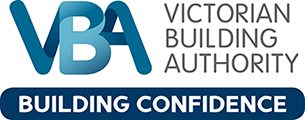 Sourced from: Norton Rose Fulbright
Sourced from: Norton Rose Fulbright
The Victorian Government has taken up the challenge to continue to reform the Victorian building industry in 2016, by passing the Building Legislation Amendment (Consumer Protection) Act 2016 (Vic). The reforms are expected to come into force on 1 July 2017 and include some dramatic and important changes as a first stage of reform following problems with domestic building identified by the Victorian Auditor General in May 2015.
Below we list the relevant key topics of the anticipated reforms, most likely to impact the players in our industry:
- Revision to the requirements for registration, with time-limited registrations and renewals dependent on continuing professional development
- Increased powers for the Victorian Building Authority
- Overhaul of the dispute resolution process for domestic building work.
Registration: The new requirement to renew
 Registration as a building practitioner will no longer be indefinite, but will instead be limited to a period of up to 5 years. This will apply to all categories of registered building practitioners (eg commercial and domestic builders, building surveyors and other relevant consultants). Renewal applications will in part be determined by an individual's compliance with continuing professional development requirements. Now the Act has passed, Victorian practitioners will need to implement or improve the means of achieving and recording such learning, especially for companies whose staff members are registered building practitioners.
Registration as a building practitioner will no longer be indefinite, but will instead be limited to a period of up to 5 years. This will apply to all categories of registered building practitioners (eg commercial and domestic builders, building surveyors and other relevant consultants). Renewal applications will in part be determined by an individual's compliance with continuing professional development requirements. Now the Act has passed, Victorian practitioners will need to implement or improve the means of achieving and recording such learning, especially for companies whose staff members are registered building practitioners.
 The Building Practitioners Board (BPB) will be abolished and the Victorian Building Authority (VBA) will take over the BPB's functions, including registration and discipline of building practitioners.
The Building Practitioners Board (BPB) will be abolished and the Victorian Building Authority (VBA) will take over the BPB's functions, including registration and discipline of building practitioners.
The VBA will take disciplinary action against building practitioners using a quicker "show cause" process. The grounds for disciplinary action will be expanded, in line with other reforms in the Act.
The Building Legislation Amendment (Consumer Protection) Bill 2015 is the first stage of the reform process to address flaws in the domestic building system, as identified by the Victorian Auditor General.
Further measures to improve the regulatory regime will follow and include expanding the registration requirements to corporations, making information on building practitioners' registration and disciplinary history more accessible to consumers and improvements to the building permit levy collection system.
